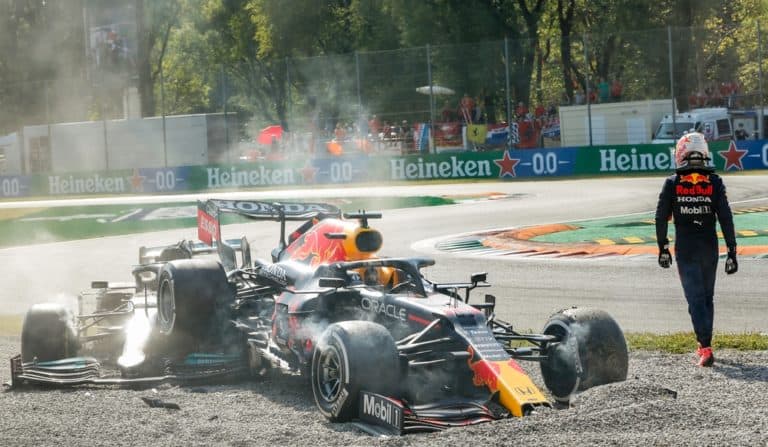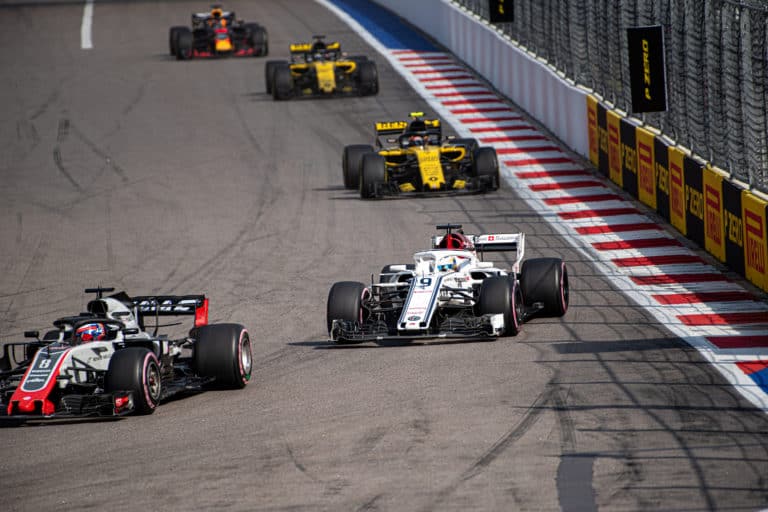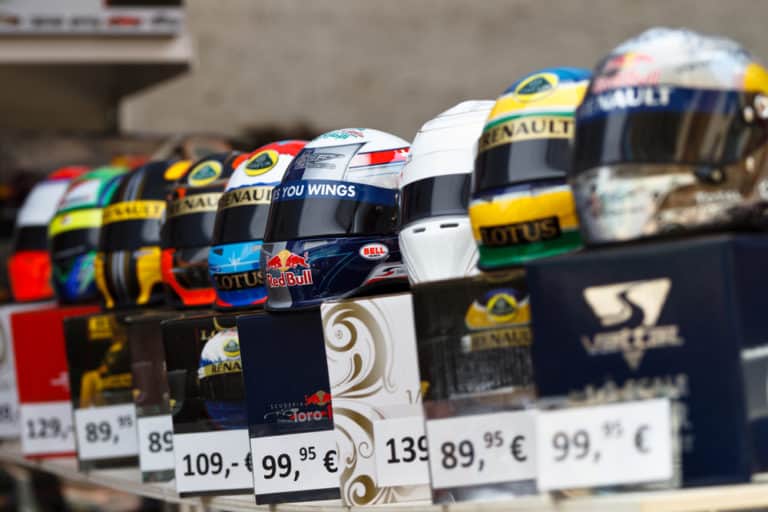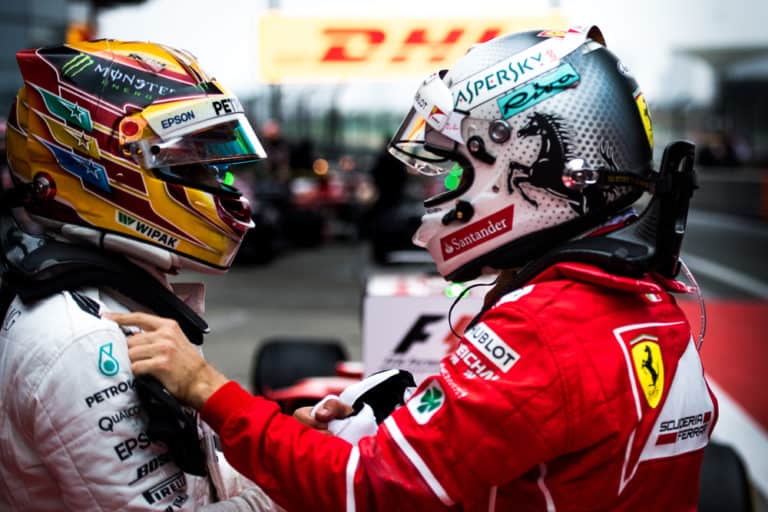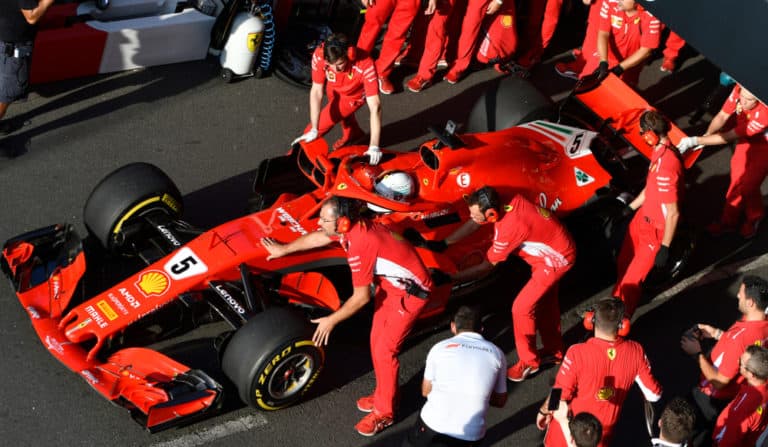Race engineers are some of the most integral members of an F1 team, and although we often hear them talking to a driver on the radio during a race, we never get a clear picture of what they actually do. They are much more than just a communications bridge between the driver and the strategists and engineers in the garage in the factory. So, let’s examine what the role of an F1 race engineer entails.
F1 race engineers are responsible for overseeing a particular car/driver on and off the racetrack. They need to ensure that the driver is happy and aware of everything they need to know. They also make sure the car is operating at peak performance and assist the driver in maximizing its ability.
Formula 1 race engineers have multi-faceted roles that require a wide range of skills. So let’s get into what their role entails, what they are responsible for, and the skills needed to become an F1 race engineer.
If you’re looking for some F1 merchandise, check out the awesome stuff at the official F1 store here.
Role Of The Race Engineer In F1?
The role of a race engineer in F1 involves being the first point of contact with the driver and overseeing the car’s operation during the race weekend. The race engineer connects all the engineering team and the driver and ensures that they work together to maximize the car’s potential.
Each driver in a Formula 1 team is assigned a race engineer, and they generally stick with them for as long as the driver or the engineer remains with the team. This is because the race engineer and driver need to have a good relationship. They have to work together a lot, and the race engineer is responsible for keeping the driver calm on track while telling them everything they need to know. They must understand their driver’s needs and limitations and know when to talk to them and how to do so. Therefore, the human aspect is as essential as their engineering capabilities.
What Is A F1 Race Engineer Responsible For Telling A Driver When They’re In The Car
A lot is going on during F1 races, and it is up to the race engineer that their driver knows everything they need to know during a race. This includes:
- Information on car setup.
- Problems with the car and the potential fixes.
- Distance between them and other cars on track.
- When they can use their DRS (Drag Reduction System).
- Strategy decisions.
- When to make a pit stop.
- When they have blue flags waved at them, they have to let someone pass.
- When there is a hazard on the racetrack.
- When there is a yellow flag, safety car, or virtual safety car.
- When the race has been red-flagged.
While this isn’t a definitive list, as the role of a race engineer is multi-faceted and ever-changing, it gives you a good idea of the wide range of responsibilities F1 race engineers have. This information is given to the race engineer by a team of engineers, including tire engineers, aerodynamic engineers, performance engineers, control engineers, the engine team, and the strategy team. They are in constant communication with these people throughout the race to ensure their driver does as well as possible when they’re out on track.
What Is A F1 Race Engineer Responsible Off The Track?
While the most prominent role of a race engineer is their communication with their driver while they’re out on the track, they are also responsible for a variety of things when the car is in the garage. These include:
- The running plan during practice and qualifying sessions.
- When the car leaves the garage for the different sessions during the race weekend.
- The car setup includes fitting the correct tires and making any mechanical or technical adjustments to the car.
Off the track, they ensure that the car is ready for the driver when they get into it and that it is working correctly and is at its peak performance level. They oversee a team of engineers and mechanics to ensure that all of this happens.
How To Become A F1 Race Engineer?
While we only hear the human side of race engineers when we watch F1 on tv, it is much more than just a communications role. They are more than just a bridge between the driver and the engineers and strategists.
Being a race engineer for a car/driver is a relatively senior role as it is so important. Therefore, most of the current race engineers started in other positions in Formula 1. Many worked as engineers in the team’s factory or headquarters or as performance engineers, while others worked as strategists or in different roles. They worked their way up through the ranks until they got the senior race engineer job.
They all studied some form of engineering at university/college before entering the world of F1 and working their way through different engineering roles before becoming a race engineer.
Essential Skills For F1 Race Engineers
Beyond the formal qualifications and working your way up through the team setup, there are several vital skills you need to have to be an F1 race engineer. These include:
- The ability to think and act under pressure: F1 garages are fast-paced environments with many moving people and parts. As a race engineer, you must be able to get information from multiple sources at short notice, decide what to do with it, and act on it skilfully to ensure that you maximize the efficiency of the car and driver you are responsible for.
- Effective communication skills: As a race engineer, you’ll work with several people. Some of them will be reporting to you, and you’ll be reporting to others. Therefore, you need to understand what is happening and ensure that it is passed on to the relevant people.
- Ability to communicate efficiently and quickly: Things happen very quickly in Formula 1, which means it is vital to communicate things at short notice and in an easy-to-understand way. As race engineers are the primary point of communication, they need to keep the driver updated on important information without distracting them from the race. Often, the information you’ll be given will contain engineering jargon, so it is up to you to interpret this and convey this to the driver without confusing them.
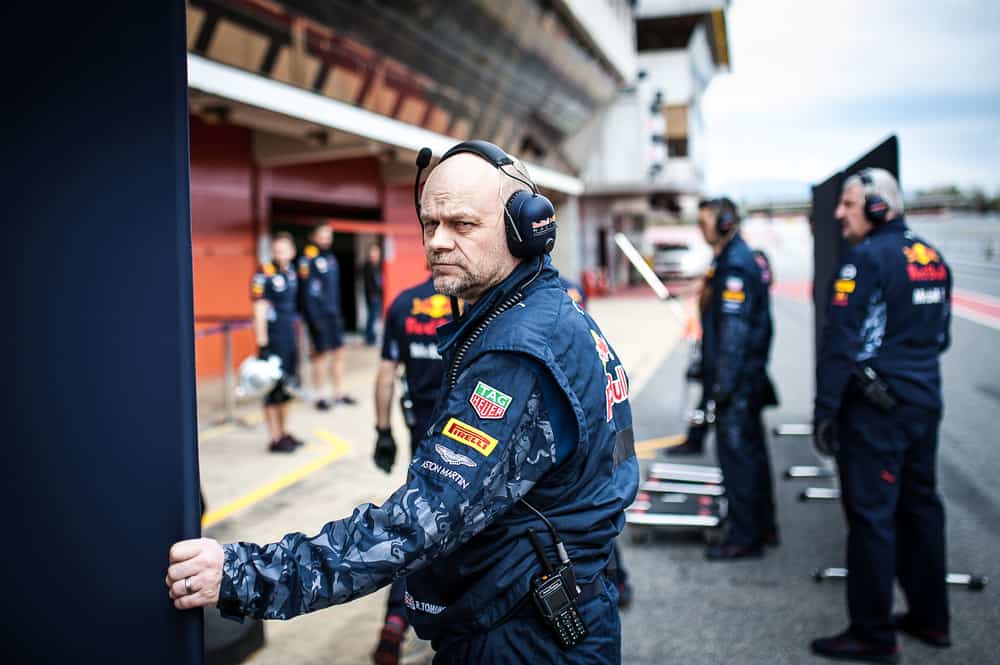
Conclusion
Race engineers play a critical role in F1. They are responsible for ensuring that the car they’re responsible for is at peak performance level. They also make sure that the driver is happy in the car and maximizes its capabilities. Beyond this, they manage the running and maintenance of the car during race weekends and ensure that their driver knows what is happening on the track, both in terms of strategic decisions and safety. It is a multi-faceted role that requires excellent communication and engineering skills.


